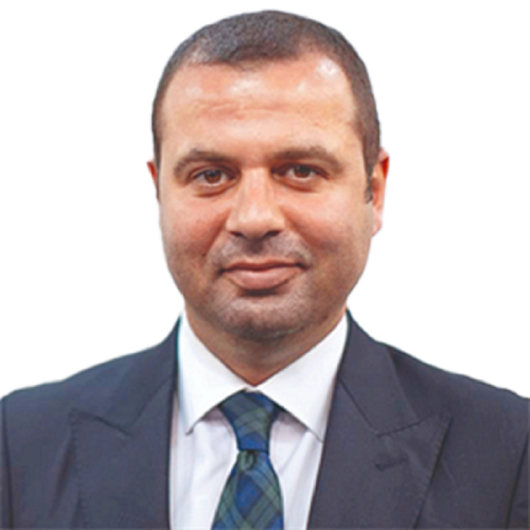The European Union - and its locomotive Germany - is facing two uncertain questions. One, in the unnamed, multi-faceted new global landscape, what will be the Union's position? Two, how will the rising and internally divisive racism (let's not call it far-right, but outright racism) be addressed?
Russia's occupation of Ukraine has pushed the European Union, which harbors a desire for independent policies, under the wings of America. We've previously written about how Washington has skillfully used the Ukraine war to bring the EU closer and reactivate NATO.
However, the tide is turning. The emergence of Donald Trump as the favorite in the U.S. elections is worrying the European Union. Brussels is concerned about Trump leaving Ukraine in the lurch if he becomes President, striking a deal with Putin, and demanding concessions from the EU. Even Trump's "humorous" remarks about encouraging Russia to attack NATO members who do not spend on defense have caused unrest within the EU. This outburst has revived old debates about a common security policy on the continent.
In the coming days in Brussels, we will see intensifying discussions about reducing dependency on security from the U.S., increasing Union defense spending, enhancing military capacity, and thus making the EU a player. Analyses on topics like "We must have nuclear deterrence (i.e., weapons)," even in liberal-left newspapers like The Guardian, illustrate the seriousness of this quest and depth of concern.
That's one side of the coin. The other side is this: A reverse process is unfolding in the streets of Europe. Across Europe, anti-EU, what's called "far-right" racist tendencies, groups, and parties are gaining popularity. They are expanding their bases in the Netherlands, Belgium, and Italy, where they are in power. They narrowly missed entering a coalition in Spain and are leading in polls in France. In Germany (AfD party), they've taken second place. This means racist, xenophobic parties are preparing to take the reins in some of the most important countries in the EU.
German Chancellor Olaf Scholz's remarks, not reflected in the Turkish media, indicate they are aware of this danger. Scholz says the influx of migrants to Europe, the quest for nation-states, and economic crises have led to the rise of "far-right" parties. He mentions that the AfD's rise to become Germany's strongest second party with 23% damages the country's image.
Chancellor Scholz's remarks about racist parties in that speech align precisely with the findings in the first report published by the recently established National Intelligence Academy. (You can find the details of the quite comprehensive report on MIT's website.) Ultimately, where there's smoke, there's fire. The report highlights Denmark, Germany, Sweden, the Netherlands, and Austria as the most active countries in terms of racism in 2023. It illustrates a significant increase in radical racist actions across the continent since September. It emphasizes that a significant portion of racist actions are motivated by Islamophobia (and anti-Turkish sentiment).
The important forecast made by the report - which concerns the Chancellor and the future of the EU - is this: "The rise of racist parties to power in European countries may lead to processes similar to BREXIT occurring in different countries." In other words, the EU could shrink or fragment.
The trend suggests that the possibility of the EU emerging as a new actor in the new order is weaker than the possibility of it shrinking. Therefore, we need to make the following observations: One, European political wisdom has failed in the face of rising racism. The populist and discriminatory policies of European leaders have not prevented, but rather legitimized, the rise of racism. Two, the existence of racist parties disrupts and will disrupt internal peace in countries with high immigrant populations. Three, these racist parties facilitate Russia's penetration into the EU. Four, with the strengthening of anti-EU politics, member countries will become more dependent on the U.S. (According to the Intelligence Academy report, these racist groups are in interaction with American far-right groups.)
Türkiye's EU membership could have been the most important antidote to this process of fragmentation. If Türkiye were an EU member, it could have breathed life into the possibility of the EU becoming a player with its added military value and dynamic population. However, European leaders thought small with populist motives. They kept Türkiye out. Now they're paying the price.




















